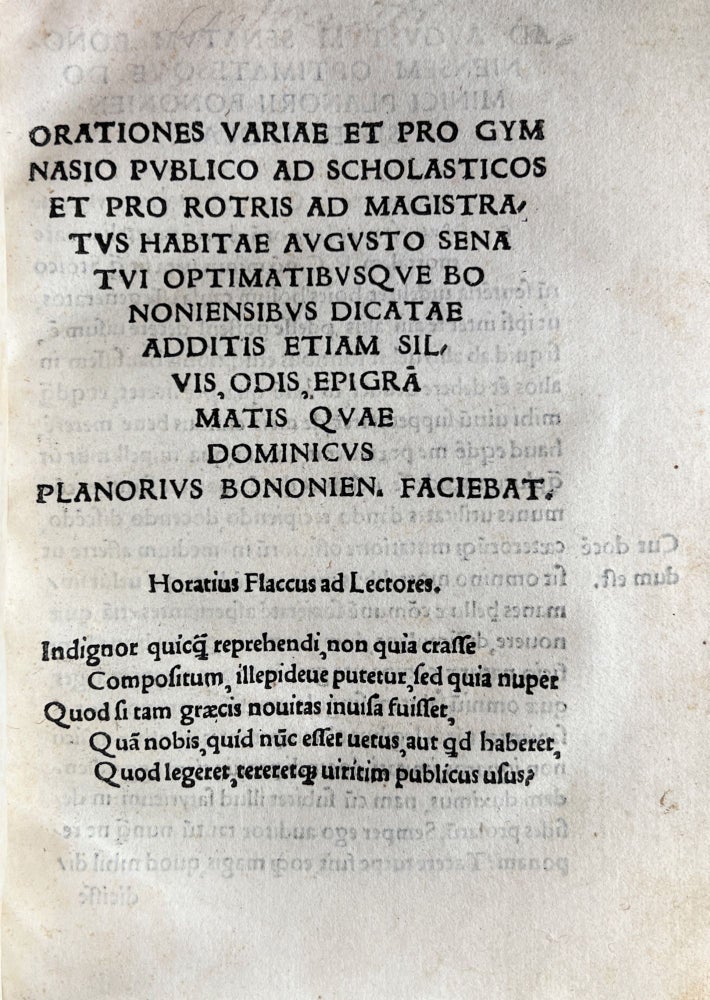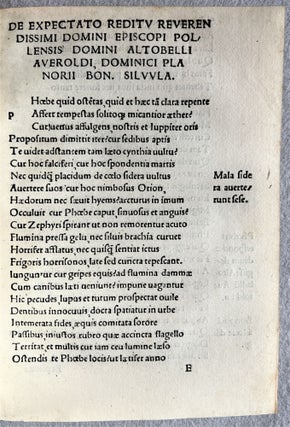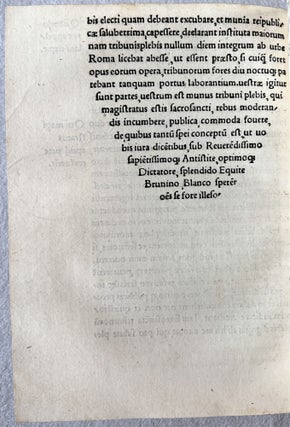Orationes variae et pro Gymnasio publico ad scholasticos et pro rotris ad magistratus habitae augusto Senatui optimatibusque Bononiensibus dicatae additis etiam Silvis, odis, epigrammatis. Bologna: Hieronymus de Benedictis, March 1523.
4to (189 x 137 mm). [84] pp. Roman type, a few words in Greek, 27 lines. Drop-title; errata, colopon and register at end. Initial spaces with guide letters. A couple of upper margins cut close without touching text, small light stain in lower corner of a few leaves. Modern parchment, edges red-sprinkled. Formerly in a collected volume, old ink number on title-page.***
Only Edition, the only published work by a little-known Bolognese humanist, containing public orations on various subjects, mainly of ethical philosophy (how to live one’s life), including the role of government, the obligation to serve one’s society, free will, justice, self-knowledge, etc.; and several poems. The collection is dedicated to the Senate of Bologna.
The first and longest of the orationes was held in the Law Faculty of Bologna, for students; others, titled Ad magistratus, may have had a similar audience, as well as prominent citizens. Planorius peppered his speeches with classical allusions and citations. Horace takes the lead; also cited are Seneca, Martial, Juvenal, Plutarch, Virgil, Caesar, Ovid, Pliny, Xenophon, and others. Several epigrammatic poems are dedicated to fellow Bolognese humanists, including Giovanni Andrea Garisendi, the musician Giovanni Spataro, and the diplomat Alessandro de’ Grassi. The first and longest poem is an ode celebrating the “awaited return” of Altobello Averoldi (1468-1531), the popular Bishop of Pola, and influential (and rich) Papal diplomat, whose residence in Bologna had been interrupted in 1517 when he was named papal nuncio to Venice until 1523.
I locate only the Mazarine copy outside Italy. EDIT-16 CNCE 32666 (5 Italian locations); Boeuf, ed., La Bibliothèque parisienne de Gabriel Naudé en 1630 (Geneva, 2007), no. 716. Item #4167
No longer available
Status: On Hold



